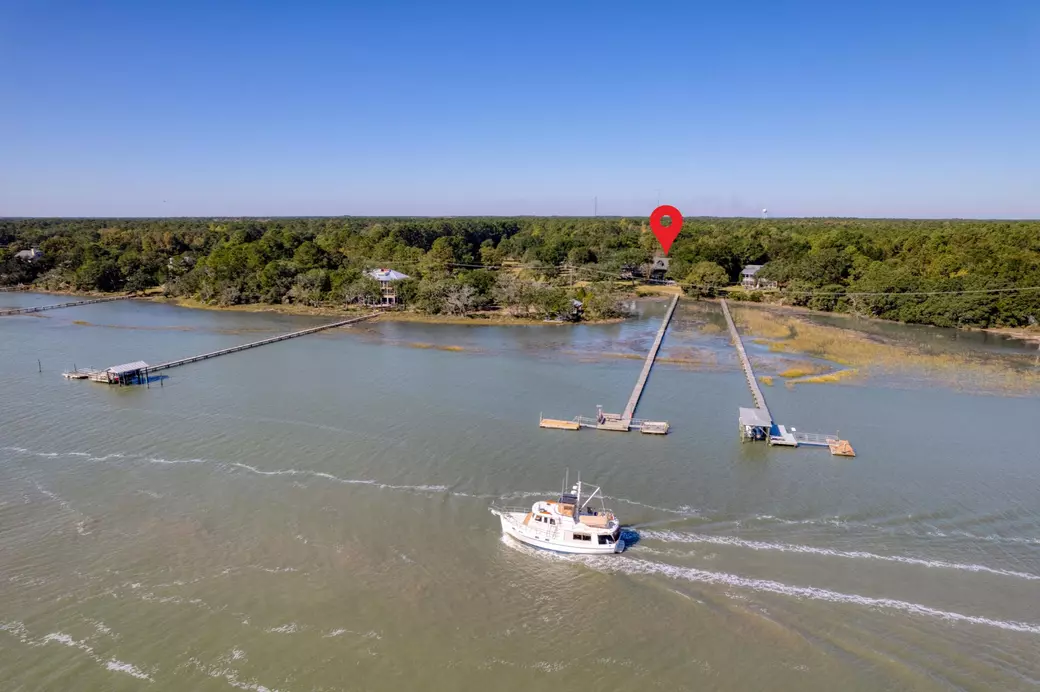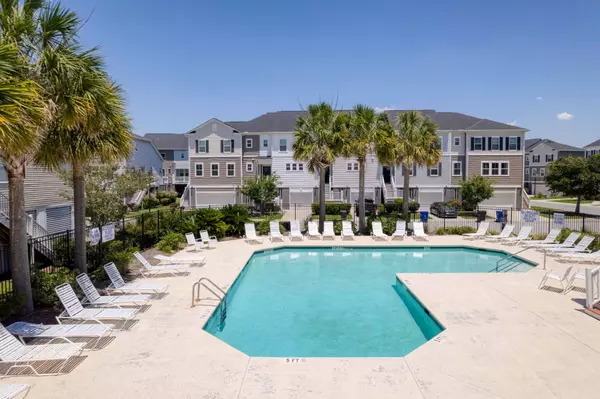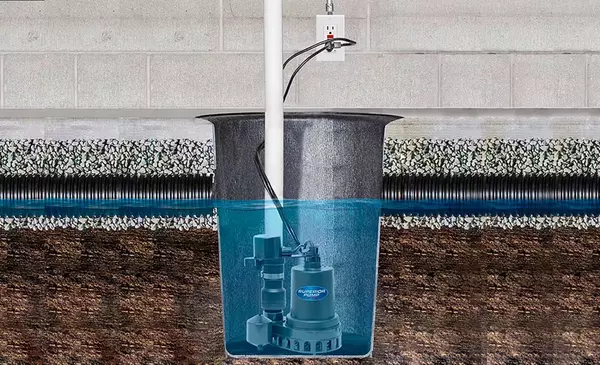Anchored Ambitions: The Pros and Cons of Owning a Dock on the Intracoastal

Owning a dock on the Intracoastal Waterway is a dream harbored by many waterfront enthusiasts. The allure of easy access to the water, breathtaking views, and the potential for maritime adventures can be irresistible. However, like any property investment, there are both positive and challenging aspects to consider. In this exploration, we'll delve into the good and the bad of owning a dock on the Intracoastal, shedding light on the various factors that may influence your decision to anchor down in this unique waterfront lifestyle.
The Good: Nautical Nirvana
1. Unmatched Access to Water:
Owning a dock on the Intracoastal provides unparalleled access to the water. Whether you're an avid boater, fisherman, or simply love the serenity of waterfront living, having your own dock grants you the freedom to embark on aquatic adventures at your leisure.
2. Spectacular Views and Sunsets:
Enjoy front-row seats to breathtaking sunsets and panoramic water views. Your dock becomes a personal vantage point for nature's daily spectacle, creating a tranquil and picturesque backdrop for relaxation.
3. Increased Property Value:
A dock can significantly enhance the overall value of your waterfront property. This desirable feature can attract potential buyers and contribute to a higher resale value when the time comes to sell.
4. Entertaining Oasis:
Transform your dock into an entertaining oasis. Host gatherings, dinner parties, or simply unwind with friends and family by the water. The soothing sounds of lapping waves create a unique and enjoyable atmosphere.
The Bad: Navigating Challenges
1. Maintenance Costs:
Owning a dock comes with ongoing maintenance costs. Exposure to the elements and marine life can lead to wear and tear, necessitating regular inspections, repairs, and potentially costly upgrades to keep your dock in top condition.
2. Environmental Impact:
Docks can have an environmental impact, particularly on sensitive coastal ecosystems. The construction and presence of docks may disturb marine habitats, and adherence to environmental regulations is crucial to minimize negative effects.
3. Navigational Hazards:
Depending on the location and design, docks can pose navigational hazards. Intracoastal Waterway traffic, tides, and storms can challenge even the most well-constructed docks. Proper lighting, signage, and adherence to safety regulations are vital.
4. Regulatory Compliance:
Owning a dock often involves navigating complex regulatory frameworks. Permits, zoning regulations, and adherence to environmental guidelines can be bureaucratic hurdles that require time and effort to overcome.
Conclusion: Weighing Anchor in Waterfront Living
Owning a dock on the Intracoastal offers a unique blend of joys and challenges. As with any significant investment, careful consideration of your lifestyle, budget, and environmental responsibilities is crucial. If you're ready to embrace the waterfront lifestyle, the rewards of owning a dock can create a lasting connection to the water, turning your property into a maritime haven. However, it's essential to navigate the potential challenges wisely, ensuring that your waterfront dreams remain a source of joy for years to come.
Categories
- All Blogs (81)
- 1031 exchange (2)
- 2024 market (1)
- 55 and over community (1)
- activities (2)
- african american (2)
- ai (1)
- ai design (1)
- angel oak tree (2)
- antebellum (2)
- assisted living (1)
- authors (1)
- blue bottle tree (1)
- boating (2)
- books about the lowcountry (1)
- boone hall (2)
- bulls island (2)
- buyer (8)
- buying (21)
- buying a home (20)
- buying in mount pleasant (6)
- buying in the lowcountry (6)
- buying on the water (4)
- cad (1)
- canoeing (1)
- charleston (30)
- charleston county (15)
- charleston tax (2)
- chart a boat (1)
- childhood home (1)
- climate change (1)
- coastal design (1)
- coastal erosion (1)
- coastal kitchen (1)
- coffee (1)
- coffee shops in charleston (1)
- condos (1)
- culinary (1)
- cypress gardens (1)
- design (2)
- dewees island (1)
- dock (2)
- docklife (1)
- downtown charleston (1)
- drayton hall (2)
- elderly couple (1)
- estate (1)
- farmers markets (1)
- flowers (1)
- folklore (1)
- folly beach (3)
- folly river (1)
- food (1)
- forestland (1)
- Fourth of July in Charleston (1)
- garden (1)
- gardening (1)
- georgian (1)
- greater charleston (5)
- greek revival (1)
- green thumb (1)
- greenhouse (1)
- gullah (1)
- haint blue (1)
- heirs' property (1)
- high water (1)
- historic architecture (1)
- historical homes (2)
- history (1)
- hoa fees (1)
- home buying (8)
- home repair (3)
- home styles (1)
- homeowner (6)
- homeownership (6)
- homes for sale in charleston (1)
- homes for sale in james island (1)
- homes for sale in mount pleasant (1)
- homes for sale in west ashley (1)
- homestead (1)
- homestead exemption (1)
- hospitality (1)
- hostess (1)
- hosting (1)
- houses (1)
- hurricane (1)
- insulation (1)
- interior decor (3)
- interior design (2)
- interiordesign (1)
- intracoastal (3)
- investing (1)
- investment (2)
- investment property (1)
- isle of palms (3)
- italiante (1)
- james island county park (1)
- john's island (1)
- kayaking (1)
- kitchen design (2)
- kitchen layout (1)
- land in common (1)
- lighthouse (1)
- lighthouses (1)
- lowcountry (10)
- luxury (1)
- luxury real estate (1)
- magnolia plantation (2)
- marketing (2)
- marketingyourhome (1)
- marsh (1)
- mold (1)
- mold in homes (1)
- mold in the lowcountry (1)
- mold remediation (1)
- mount pleasant (5)
- moving (3)
- moving to charleston (5)
- movingoutofstate (1)
- movingtocharleston (2)
- nar (1)
- nar lawsuit (1)
- nautical (1)
- oak trees (1)
- paddleboarding (1)
- palm trees (1)
- palmetto (1)
- palmetto trees (1)
- plantation (1)
- plantations (2)
- property (1)
- property preservation (1)
- raised homes (1)
- real estate (7)
- realestate (2)
- realestatemarketing (1)
- realty (6)
- realty101 (1)
- regime fees (1)
- relocation (1)
- relocationcosts (1)
- remediation (1)
- rental (1)
- rental properties (1)
- restaurant week (1)
- restaurants (1)
- retirement (1)
- sailing (1)
- seller (3)
- selling (10)
- selling a home (3)
- selling in charleston (4)
- selling in mount pleasant (2)
- selling on the water (1)
- selling your home (5)
- sellingyourhome (1)
- senior citizen (1)
- senior citizens (1)
- senior living (1)
- shark tooth (1)
- shem creek (2)
- south (1)
- south carolina (4)
- south of broad (1)
- southern architecture (1)
- southern folklore (1)
- southern hospitality (1)
- southern lady (1)
- southern living (2)
- spanish moss (1)
- spray foam (1)
- spray foam insulation (1)
- sullivans island (2)
- sweetgrass (1)
- sweetgrass baskets (1)
- taxes (1)
- tidal (1)
- title (2)
- title insurance (1)
- tour (1)
- tour times (1)
- townhomes (1)
- useanagent (1)
- victorian (1)
- wando river (1)
- water views (1)
- waterways (2)
- whyagentsmatter (1)
- winter (1)
- winter maintenance (1)
- winter ready (1)
- winterize (1)
Recent Posts










"My job is to find and attract mastery-based agents to the office, protect the culture, and make sure everyone is happy! "

